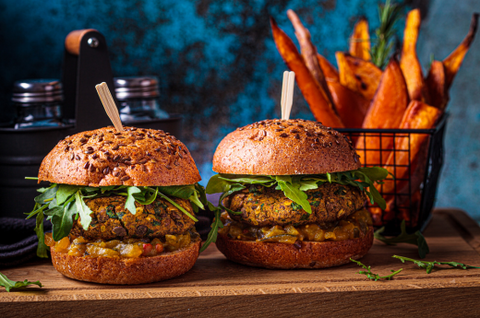The ketogenic diet has been gaining popularity for some time now, as a way to jumpstart weight loss and regain overall health. This diet cuts down on carbs significantly and instead relies on fats in order to lose excess body fat while preserving muscle mass. It helps reduce inflammation, improve blood sugar levels, and most importantly – can help you quickly reach your weight-loss goals. In this post, we will explore the benefits of the ketogenic diet program for obtaining lasting results with minimal effort.
The ketogenic diet program is a powerful tool to help you reach your weight loss goals while still maintaining an overall healthy lifestyle. By cutting back on carbs significantly and incorporating nutrient-dense plant-based foods, you can realize fast results while reducing inflammation and improving blood sugar levels. If done correctly with sufficient preparation, the keto diet can be a great option for vegetarians looking to jumpstart their journey towards health and wellness!
We’ll take a look at what kind of food is involved with this approach and give you tips for sticking to it along the way. Get ready; if you’re looking to shed those unwanted pounds - this could be your answer!

What is a ketogenic diet and how can it help you lose weight
A ketogenic diet is a low-carb, high-fat diet that puts your body in a state of ketosis. In ketosis, your body burns fat for fuel instead of carbohydrates. This process can lead to weight loss because your body is using stored fat for energy.
The ketogenic diet is not just for meat-eaters. It can also be followed in a vegetarian version, though it will require some careful planning. Vegetarians on the keto diet should focus on including high-fat plant-based foods such as avocados, nuts and seeds, coconut oil, olive oil, and nut butter. They should also include low-carb vegetables like spinach, kale, cauliflower and broccoli to meet their daily macro requirements. To ensure adequate protein intake, vegetarians may want to include plant-based proteins such as tempeh or tofu in their meals.
Though some people may find transitioning from a plant-based diet to the ketogenic diet challenging at first, there are many benefits that can be gained from following it. Those on the keto diet may experience an increase in energy, improved mental clarity, reduced cravings for sugar, and weight loss. It is important to note that the keto diet should always be supervised by a medical professional due to the potential risks involved with following this type of plan.
However, it is important to note that the keto diet may not be suitable for everyone, so it is important to consult with a healthcare professional before starting this or any new diet.

Foods to eat on a ketogenic diet
The ketogenic diet is a low-carb, high-fat diet that has been gaining increasing popularity in recent years. Rather than relying on carbohydrates for energy, those following a ketogenic diet rely on fat for fuel. To successfully follow this diet, it's important to choose foods that are low in carbs and high in healthy fats.
Some of the best food options for a ketogenic diet include avocados, nuts and seeds, fatty fish, eggs, and low-carb vegetables like spinach and broccoli. By incorporating these foods into your diet, you can help your body reach a state of ketosis, which can lead to weight loss, improved brain function, and increased energy levels.

Tips for staying on track with the diet
Maintaining a healthy diet can be a challenge, especially when tempting treats are within reach. However, staying on track with your diet can be achieved with a conscientious effort and a few helpful tips. One important tactic is to plan ahead by prepping nutritious meals and snacks to have readily available. Additionally, keeping healthy options nearby, such as fruits and veggies, can curb cravings and ensure you stay on track.
Staying on track with a vegetarian diet can be especially difficult, as the limited food options may make it more tempting to splurge on unhealthy snacks. To prevent this, plan ahead and make sure you always have healthy vegetarian meals and snacks on hand. Try to keep choices like raw vegetables and hummus at your desk or within easy reach for when cravings strike.
It's also helpful to recognize triggers that may lead to mindless snacking, like boredom or stress, and finding alternative, healthy activities to distract yourself. Consistency is key when it comes to dieting, so staying motivated and focused on your goals is essential for success.

Benefits of the ketogenic diet for weight loss
The ketogenic diet, also known as the keto diet, has gained popularity as an effective method for weight loss. This high-fat, low-carbohydrate diet causes the body to enter a state of ketosis, in which it burns stored fat for energy instead of glucose. Multiple studies have shown that the keto diet can lead to rapid weight loss and improved overall health markers, such as decreased blood sugar and cholesterol levels.
Additionally, the keto diet can be effective for those who struggle with hunger and cravings, as it promotes feelings of fullness and satiety. Although the keto diet may not be suitable for everyone, it offers numerous benefits for those looking to lose weight and improve their health.
With its focus on high-fat foods and restricted carb intake, the ketogenic diet provides an effective tool for weight loss that has been studied and proven in numerous studies. For those looking to make a lifestyle change for weight loss, the vegetarian keto diet may be an ideal option. With proper planning and commitment to the process, individuals can experience all of the benefits of this diet without compromising their health or nutrition.
In summary, the ketogenic diet is a safe and effective method for weight loss that can be adapted to suit different dietary requirements such as vegetarianism. Through careful planning and dedication, individuals can successfully lose weight while maintaining their nutritional needs. With its impressive array of health benefits, the ketogenic diet is certainly worth considering for those looking to lose weight in a healthy way.

Strategies for avoiding common mistakes when starting a ketogenic diet
Starting a ketogenic diet can be a positive step towards improving your health and achieving your desired weight loss goals. However, as with any new diet or lifestyle change, it's important to be aware of common mistakes that people often make.
It's also essential to ensure you are getting enough vitamins and minerals from non-animal sources. Vegetables and fruits provide key nutrients such as iron, zinc, vitamin C and folate, but this may need to be supplemented with multivitamins if the diet is too restrictive. Additionally, increasing your intake of healthy fats such as olive oil and nuts can help reduce potential deficiencies while following a ketogenic diet.
One of the most important strategies for avoiding these mistakes is to do your research and educate yourself on the basics of the ketogenic diet. This can include understanding the types of foods that are allowed and those that are restricted, as well as the potential risks and benefits of this type of diet. Plus, it's important to stay patient and committed to the process, as results may not come overnight. By following these strategies and keeping a positive mindset, you can set yourself up for success on your ketogenic journey.
Use-case examples of people who have achieved success with a ketogenic diet
The ketogenic diet, which emphasizes high-fat and low-carbohydrate intake, has been gaining in popularity in recent years. Its benefits are many and varied - from weight loss to increased energy levels - and have been demonstrated in a number of use-case examples. One such example is that of Alec Steele, a popular YouTuber, and blacksmith who has lost over 30 pounds on the diet. Similarly, the actress Halle Berry has credited the ketogenic diet with helping her manage her type 2 diabetes, while basketball star LeBron James has said that it has improved his sports performance. Professional poker player Vanessa Selbst successfully managed to lose 30 pounds on a vegetarian keto diet. She explains that she felt "energized" on the diet and has continued to maintain her results even after returning to her old eating habits. This demonstrates the lasting power of the ketogenic diet for vegetarians looking to improve their health and physique.
These are just a few of the many success stories associated with the ketogenic diet, and they serve as a testament to the power of this nutritional approach.
In conclusion, following a ketogenic diet is a viable option for those looking to lose weight. Not only does this diet provide the user with more energy, it also helps to reduce hunger and cravings and can potentially be the vehicle for better overall health.
When transitioning to keto, it’s important to understand exactly what foods to include in your plan as well as ones to avoid and pick up some helpful tips that will make sticking to the diet easier. Furthermore, taking community members’ success stories into account can help provide guidance when setting challenging goals. By understanding all the elements of this approach and working consistently towards one's goals, everyone can experience the same level of success with a ketogenic diet.
Frequently Asked Questions
What's keto diet?
The ketogenic diet, or keto diet, is a low-carb, high-fat diet that is designed to help the body enter a metabolic state called ketosis. In this state, the body produces ketones from fat to use as a fuel source instead of carbohydrates.
What is a keto diet for?
Here are some reasons why people may choose to follow a keto diet:
-
Weight loss: The low-carbohydrate, high-fat nature of the keto diet is believed to help promote weight loss by cutting down on hunger and encouraging the body to burn stored fat for energy.
-
Improved blood sugar control: The keto diet can help to reduce insulin levels in the body and improve blood sugar control, making it a potentially useful diet for people with type 2 diabetes.
-
Enhanced mental focus and clarity: Some people claim that following a keto diet can improve mental clarity, focus, and energy levels.
-
Improved cholesterol levels: Some research suggests that following a keto diet may help to improve cholesterol levels, particularly by increasing levels of HDL ("good") cholesterol.
-
Other potential benefits: There is ongoing research on the effects of the keto diet on various health conditions, including neurological disorders, PCOS, and certain types of cancer.
Can you do keto and intermittent fasting together?
Yes, it is possible to combine the ketogenic diet and intermittent fasting. In fact, many people may find that the two approaches work well together and can provide additional benefits when used in combination.
Combining intermittent fasting with the keto diet can help to further promote the body's fat-burning processes, as the two approaches work together to increase fat utilization for energy. Additionally, intermittent fasting can help to further reduce insulin levels in the body and improve blood sugar control, making it a potentially useful diet for people with type 2 diabetes.







Comments (0)
There are no comments for this article. Be the first one to leave a message!